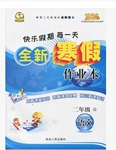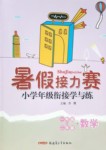题目内容
Drinking too much, the doctor said, his poor health.
A.devoted to B.based on C.arose from D.contributed to
D

练习册系列答案
 优秀生快乐假期每一天全新寒假作业本系列答案
优秀生快乐假期每一天全新寒假作业本系列答案 暑假接力赛新疆青少年出版社系列答案
暑假接力赛新疆青少年出版社系列答案
相关题目
题目内容
Drinking too much, the doctor said, his poor health.
A.devoted to B.based on C.arose from D.contributed to
D

 优秀生快乐假期每一天全新寒假作业本系列答案
优秀生快乐假期每一天全新寒假作业本系列答案 暑假接力赛新疆青少年出版社系列答案
暑假接力赛新疆青少年出版社系列答案